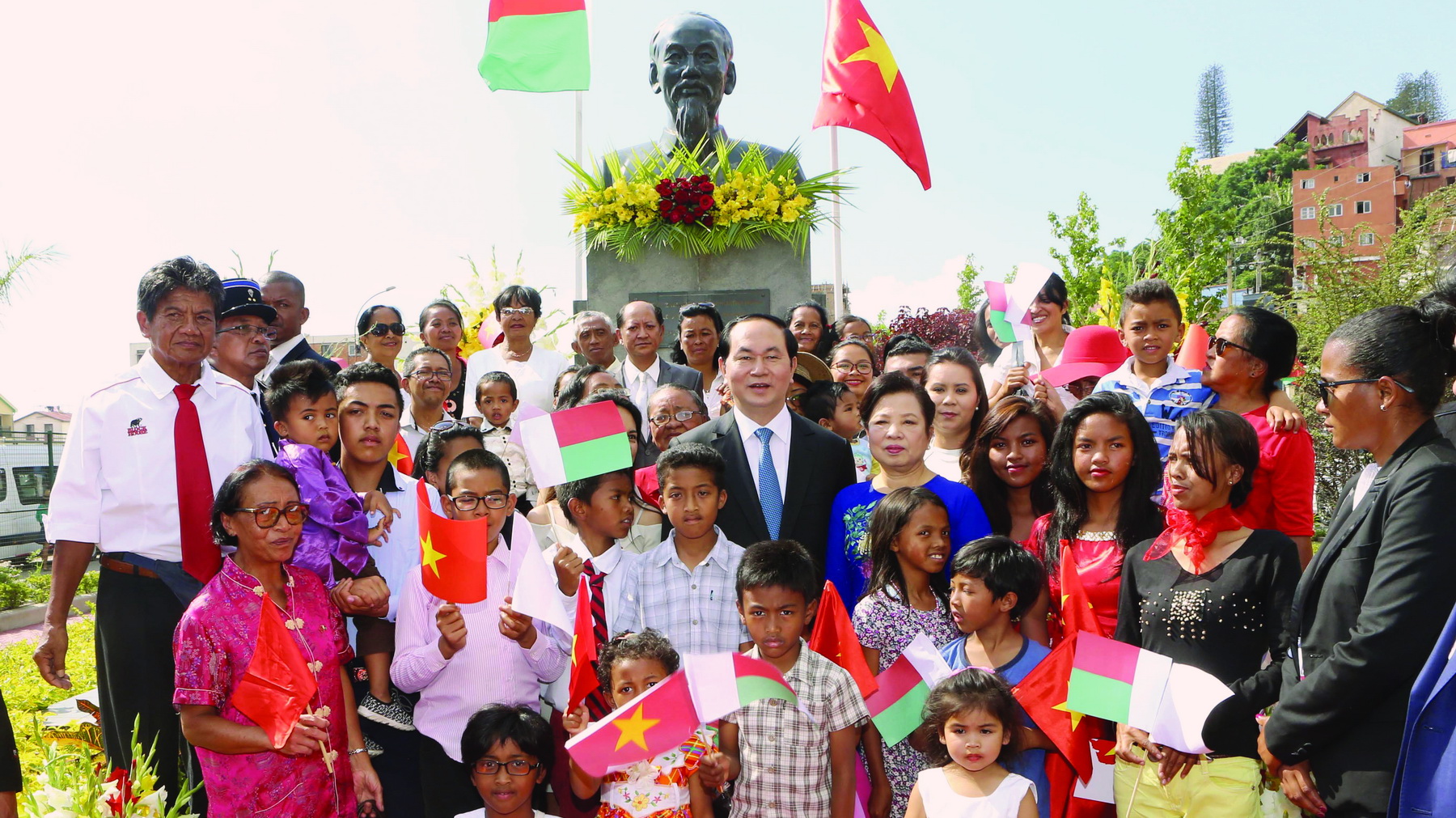Since a 1987 UNESCO resolution calling for member states to commemorate the centenary of the birth of late President Ho Chi Minh, many countries have dedicated statues, museums, parks and streets in honor of Vietnam’s 'great man of culture.'
The resolution was promulgated at the 24th session of the General Conference of the United Nations Educational, Scientific and Cultural Organization (UNESCO) in Paris in 1987, three years before the centenary of the late president’s birth.
Ho Chi Minh, also known as Nguyen Sinh Cung, Nguyen Tat Thanh, and Nguyen Ai Quoc, was born in 1890 in north-central Vietnam’s Nghe An Province, then part of French Indochina. He passed away in 1969.
In its resolution, the General Conference recommended that UNESCO member states organize events “as a tribute to his memory, in order to spread knowledge of the greatness of his ideals and of his work for national liberation.”
“President Ho Chi Minh, an outstanding symbol of national affirmation, devoted his whole life to the national liberation of the Vietnamese people, contributing to the common struggle of peoples for peace, national independence, democracy and social progress,” the resolution reads.

A student of ACS Primary School in Singapore tells Vietnam News Agency reporters his knowledge of late President Ho Chi Minh at his memorial in Singapore, January 28, 2014. Photo: Tuoi Tre
'Culture of the future'
Vu Binh, director of the Ministry of Foreign Affairs’ Cultural Diplomacy and UNESCO Affairs Department, said even before the UNESCO resolution in 1987, foreign countries knew about President Ho Chi Minh and his legacy had long been remembered by people across the world.
In a 1923 interview with the Vietnamese president, Russian poet Osip Mandelstam described him as a man that “breathes culture, not European culture, but perhaps the culture of the future.”
The culture that President Ho Chi Minh breathed was a culture of national liberation, social liberation, and human liberation, Binh said.
According to Binh, the president had never been in favor of personality cult in his lifetime, and had demonstrated clear objection to books written about him or statues erected in his honor.
Binh said that the most memorable story he has heard about how President Ho Chi Minh is loved by foreign people is from the Greek city of Edessa, where locals believe the Vietnamese leader visited 1916.
The story, told by a 102-year-old elder Binh met during his tenure as Vietnam’s Ambassador to Greece between 2006 and 2010, narrates the president’s interview with a Greek journalist in North Vietnam in 1966.
During the interview, President Ho Chi Minh asked the journalist about his hometown in Greece, to which the man replied that he was from Edessa.
“Is it the city of cherries and waterfalls?” the president asked, later revealing to the journalist that he had once been to Edessa in 1916.
In the city, there is a hundred-year-old tree that is believed to have rejuvenating effects, even regrowing itself from its own ashes after buring down completely, Binh said. Locals have named the tree ‘Ho Chi Minh’ as its quality echoed the character and legacy of the late Vietnamese president.

Nguyen Thi Kim Ngan (7th left), now chairwoman of Vietnam’s lawmaking National Assembly (then vice-chairwoman), takes a photo with other deputies at a memorial to late President Ho Chi Minh in Moscow, Russia, September 27, 2012. Photo: Vietnam News Agency
Statues in 20 countries
According to the Ministry of Foreign Affairs, as many as 20 countries across Asia, Europe, America and Africa have erected statues in remembrance of late President Ho Chi Minh.
Between 2009 and 2015 when Vietnam implemented a scheme to promote his commemoration in line with the UNESCO resolution, ten statues of the Vietnamese leader were erected in Chile, the Dominican Republic, Mexico, Argentina, the Philippines, Singapore, Sri Lanka, Laos, and Thailand.
Vietnam’s embassies in Russia, Austria, India, and Germany are also working to complete memorials to the late president in each country’s major city.
Even in countries where President Ho Chi Minh had never set foot, his ideology and influence left an impact on locals, Binh said.
“This year, a statue of President Ho Chi Minh will be erected in the city of Mimasaka, Japan,” Binh said. “Though the president had never been to Japan or the city, the Japanese people have been supportive of the plan, seeing it as a testament to Vietnam-Japan friendship and the advancement of their bilateral strategic partnership.”
In the Central American country of Panama, the local government has asked for Vietnam’s permission to erect a statue of President Ho Chi Minh at a site where statues of other iconic figures, such as the Indian activist Gandhi and the Chinese philosopher Confucius, are displayed.
President Ho Chi Minh’s legacy as the leader of an enduring revolution to liberate his people is also recognized and respected in France, a former colonial power that lost during the president’s revolution.
There are seven streets and avenues named after the late Vietnamese president in France’s major cities and overseas territories, including Lyon, a sister city to Vietnam’s Ho Chi Minh City.

The inauguration ceremony of the Ho Chi Minh Square in Antananarivo, Madagascar, September 11, 2014. Photo: Vietnam News Agency

A statue of late President Ho Chi Minh was inaugurated by the administration of Santo Domingo Este, the Dominican Republic, March 24, 2012. Photo: Vietnam News Agency
Like us on Facebook or follow us on Twitter to get the latest news about Vietnam!


















































